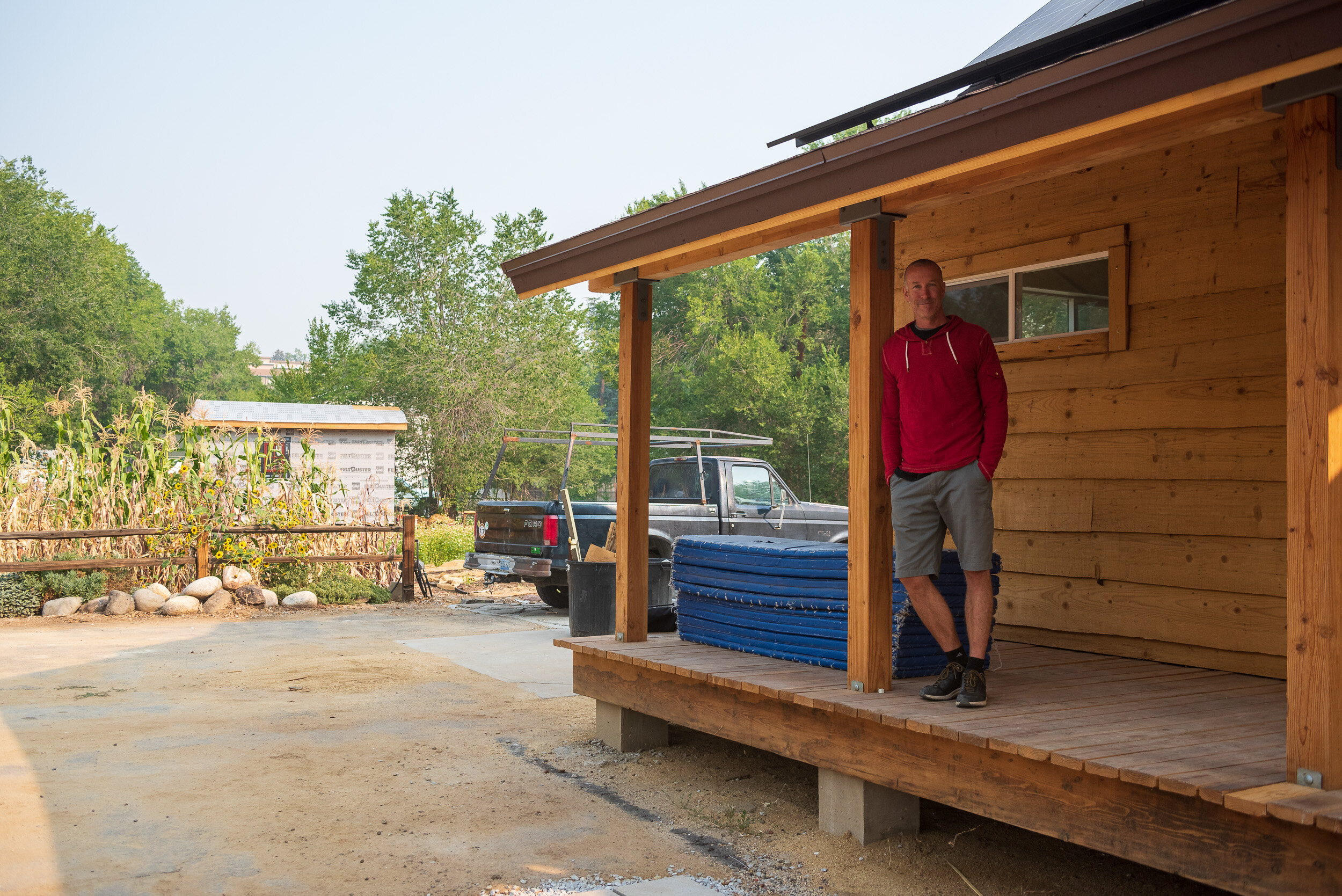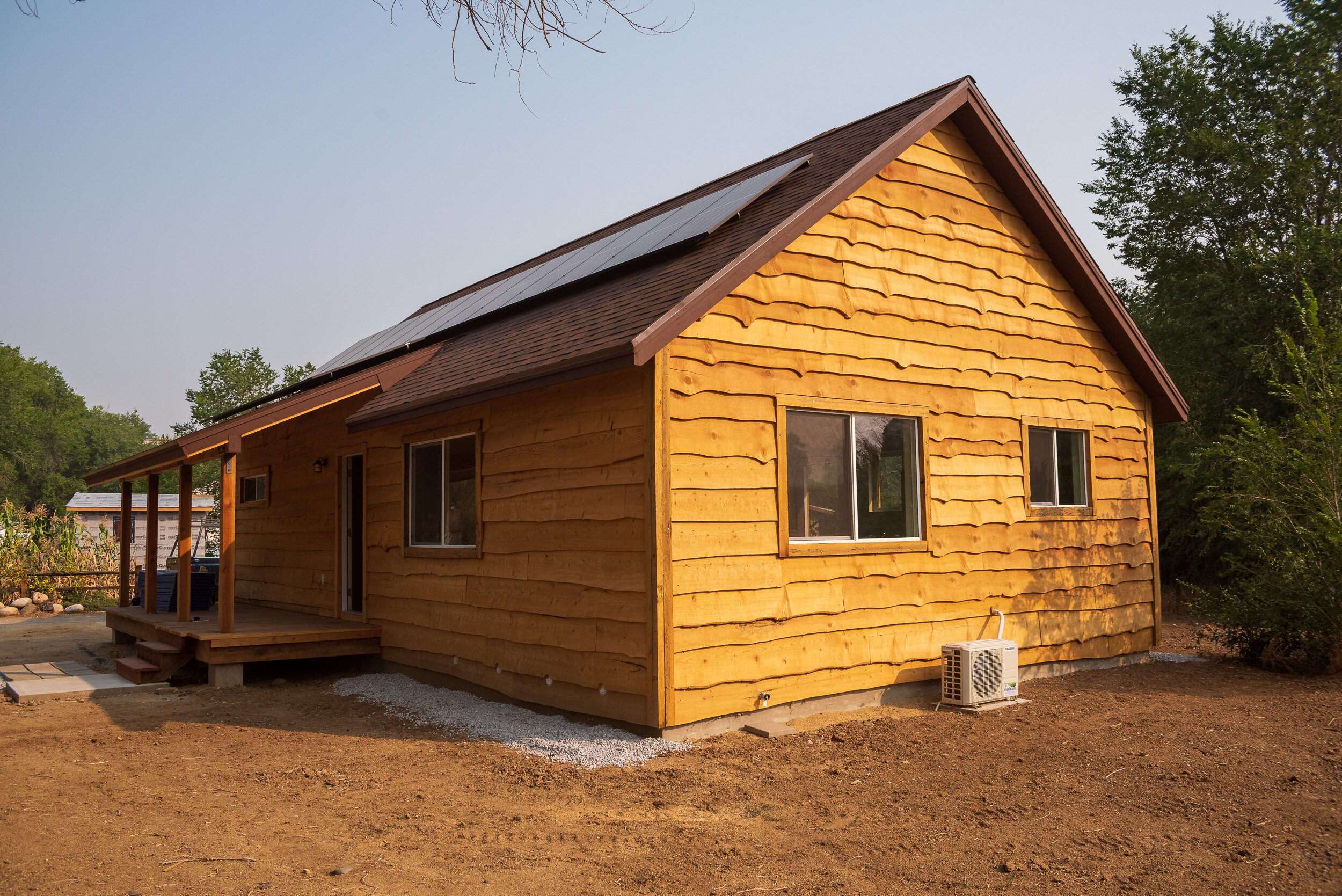Kyle Chandler-Isacksen lives sustainably and does all he can to help make Reno a sustainable community. He built a new home on property he owned as part of a new Community Housing Land Trust project. The so-called city cottage is now being sold for $225,000 with no down payments needed. The project is being managed with the Community Foundation of Western Nevada, which also developed the Village on Sage Street on Reno city-donated land. The application to qualify for purchasing the home can be found here or here: https://nevadafund.org/city-cottage/
A New Home in a Community Housing Land Trust
Kyle Chandler-Isacksen could be considered a visionary jack-of-all trades. We’ve featured him on Our Town Reno previously, helping with community murals, composting and garlic festivals. He also runs the non-profit Be The Change Reno, an urban learning space dedicated to service, sustainability, and community uplift. Now, he’s built a house on 2000 McCloud Avenue, which has been placed in a community land trust, an economic model designed to lower the cost of owning a home.
He used locally sourced and milled lumber as the siding of the home, giving it a unique log cabin feel. His wife, Katie, established an organic garden, just steps from the spacious front porch.
The two-bedroom home is an experiment to create affordable housing and home ownership a reality for low-income families. The cost of the land is taken out of the home price and put into a trust to keep the cost of home ownership down. Isacksen believes “it's part of a broader solution” as the community struggles with an affordable and accessible housing crisis.
The siding is from locally sourced wood which according to Chandler-Isacksen was mostly salvaged from a local dump.
An Unbalanced Cost of Living with Stagnant Wages
“It’s not okay when people are paying 50% of their income for a place to live,” Chandler-Isacksen said about the unbalanced cost of living here in Reno. “When the rental rates are so much higher than ownership rates, it really affects the community.”
In partnership with the Community Foundation of Western Nevada, the home is only available for a low income family to purchase. With the average home cost in Reno past $460,000 now, homeownership is nearly impossible for the majority of people. This home was assessed at $275,000 but with the land cost taken out, the home will sell for about $225,000. As part of the land trust deal, the purchaser will not be required to put any money down which eliminates one of the biggest hurdles of home ownership.
The house is about 1100 square feet and sits on a lot just shy of half an acre. The inside features a wide open floor plan with the kitchen, dining and living rooms making up one large room. The focal point is a beautiful spiral staircase which winds up to a spacious wood-lined loft.
Eco-Friendly Attributes
The house itself is extremely well insulated, utilizing rigid foam core insulation salvaged from Burning Man. Attendees of this annual event will buy this type of insulation to build cooling structures. After the event they simply throw it away. Chandler-Isacksen was able to salvage enough to fully insulate the home.
“The siding is all locally sourced and locally milled wood. The majority of it is actually from the Truckee dump,” Chandler-Isacksen said. With a six kilowatt solar panel array, the house will run nearly net-zero in energy use. Furthermore, Chandler-Isacksen also reclaimed fence boards from the local Tholl Fence Company to build a fence that lines the property.
Chandler-Isacksen is hopeful to get the house sold and occupied quickly, with an initial online application ending September 21st which was then extended to October 9th. He lives down the street and really enjoys the neighborhood. Located on an old parcel of Washoe County land that was annexed in the 1990s, it still has a rural feel, he says.


